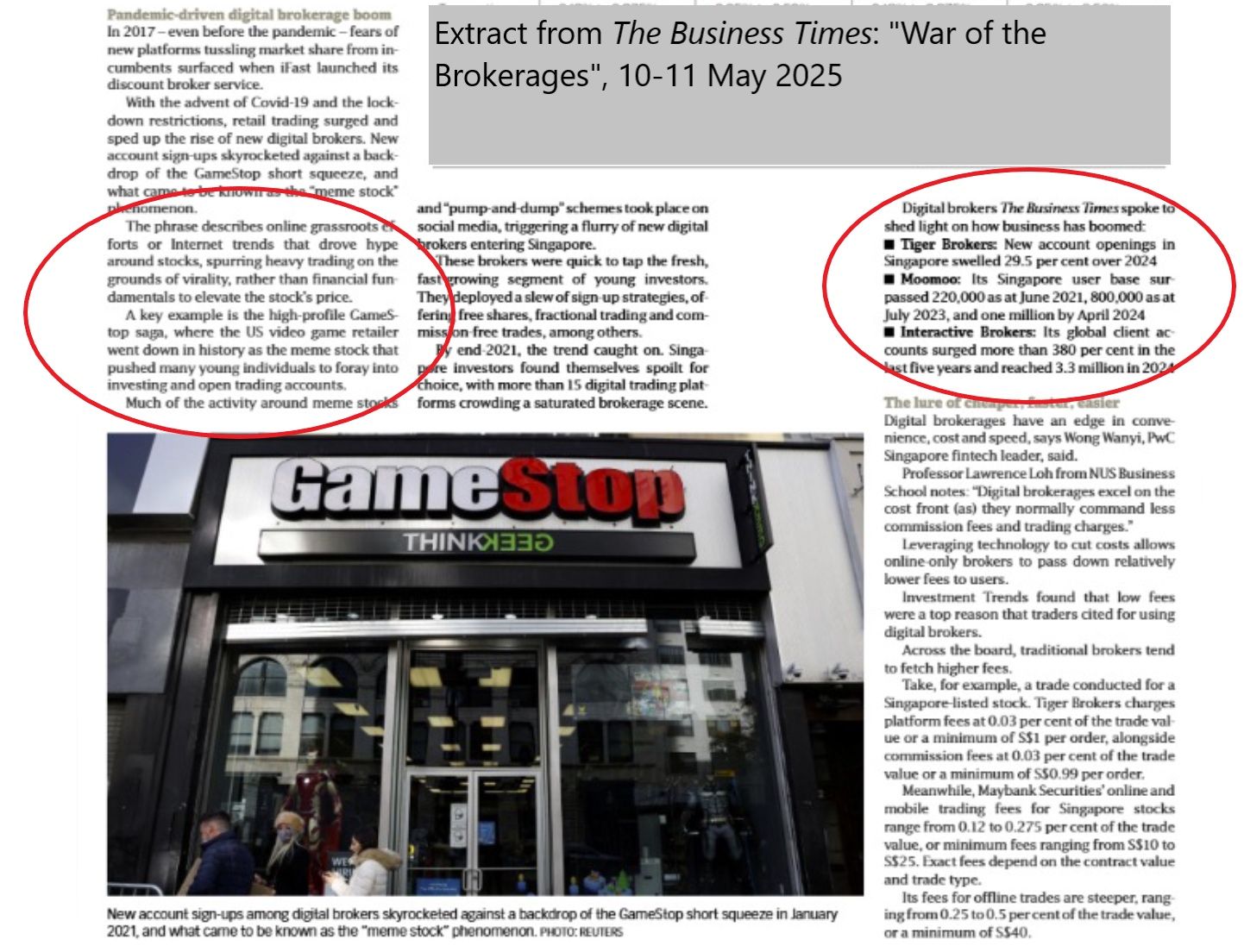Note: It was announced in November 2023 that MoneyOwl will be acquired by Temasek Trust to serve communities under a re-purposed model, and will move away from direct sale of financial products. The article is retained with original information relevant as at the date of the article only, and any mention of products or promotions is retained for reference purposes only.
______________
On the back of market declines last week, our investment team examines the difference between a forecast, a wish and a worry and reasons to remain optimistic, even during bad times.
(22 August 2022 – 26 August 2022)
Another retreat
The major stock indexes started and ended last week with steep daily declines, sending the S&P 500 and the MSCI World Index down 4.04% and 3.34%, respectively. MoneyOwl’s 100% equity portfolio was down 2.62%. The decline in stock indexes was exacerbated on Friday after US Federal Reserve Chair Jerome Powell said the Fed remains committed to extending its policy of aggressively raising interest rates, even at the risk of fueling a potential recession. Speaking in Jackson Hole, Wyoming, Powell said recent data showing a cooling of inflation “falls far short” of what the Fed “will need to see before we are confident that inflation is moving down.”
In Fixed Income, US government bond yields edged higher after Fed Chair Powell said he expects to extend the policy of aggressively lifting interest rates. As a result, the yield of the 10-year US treasury bond climbed 6bps to 3.04%, while the Bloomberg Barclays Global Aggregate Bond index was down 1.75%.
The difference between a forecast, a wish, and a worry
During the past two weeks, global stock markets have started falling again and put investors’ discipline to the test. The MSCI World Index fell 4.94% during this period, and we are seeing opinions on an eventual recession getting stronger.
A recession is not necessarily bad as it allows us to buy on the ‘cheap’ and increase our long-term average returns. The only drawdown is that many undisciplined investors will bail out when the stock markets are falling due to ‘worry’ that their wealth may be evaporated. But when it comes to investing, it’s crucial to remember the difference between a forecast, a wish, and a worry, and how they are sometimes used to forecast the future.
Forecasting is when you have a high degree of confidence in an outcome based on well-proven models. Weather forecasts, for example, are usually pretty accurate with an accuracy rate of more than 80% or more. With such high accuracy, using the word ‘forecast’ is certainly appropriate. That is different from someone issuing a “forecast” for when the S&P 500 will hit a certain number. Or when inflation will reach a certain level. Or which five stocks will rise the most over the next year.
So, when people say they forecast that something will be at this level at that time, you shouldn’t call that a forecast.
That’s a wish.
And when people forecast that something will go down at a certain time?
That’s a worry.
Do you really want to invest your hard-earned savings—the money you’ll need for your kids’ college or your own retirement—based on someone’s hunch or wish?
The good news is you can have a good experience without having to do any forecasting—you just need to be a long-term investor with a truly diversified portfolio.
Over the last 100 years or so, the average return of the market has been about 10% a year. We won’t call this a forecast, but our best guess is that over the next 100 years the average annual return will be about 10%. Of course, there may be large fluctuations, just like we have experienced for the last 100 years (and like we have experienced in the last seven months).
Instead of forecasting, focus on the power of what has been behind the stock returns of the last 100 years: human ingenuity. Millions of people at thousands of companies work to improve their products, enhance their services, and lower their costs—and all adapting in real-time to a changing world. We witnessed the power of human ingenuity over the course of the pandemic in 2020 and we are seeing it again as companies adjust to deal with inflation.
The world has changed in so many ways throughout the years. While we expect the world to keep changing —without forecasting when or how—we are confident that human ingenuity will be a constant. Whether in good times or bad, that is a reason to be optimistic.
If we want to enjoy the potential of higher returns on our money to achieve our goals, then we need to bear the short-term risks of markets going up and down. Stock markets have always rewarded investors in the long term. It is only through both the up and down periods that we find potential for long-term returns.
US Fed Jackson Hole Speech
Top officials from the world’s biggest central banks coalesced around a simple message in Jackson Hole this weekend: They are ready to follow through with higher interest rates, even if it does some damage. Federal Reserve Chair Jerome Powell said the cost of bringing down inflation will “bring some pain to households and businesses” in the US, while Isabel Schnabel, a top European Central Bank official, said there was “little choice” but to continue tightening even if Europe’s economy tips into recession.
Malaysia Prime Minister Doing Time
Former Malaysian premier Najib Razak will serve 12 years in prison after losing his final appeal in a trial related to the 1MDB scandal — the investment fund that saw billions of dollars siphoned across the globe. The court ruling prevents Najib, 69, from contesting in the next general election that must be held by September 2023. He will go down in history as becoming the first prime minister in the Southeast Asian country to be convicted and imprisoned. There is a glimmer of hope for him — he could eventually get out of jail by seeking a pardon from Malaysia’s king.
Global Growth Bleak
Economic activity weakened from the US to Europe and Asia, reinforcing concerns that soaring prices and the war in Ukraine will tip the world into a recession. US business activity contracted for a second-straight month in August, falling to the weakest level since May 2020, while output in the 19-nation Euro zone fell as record energy and food inflation saps demand. In Asia Japanese output shrank, Australia’s services sector contracted and China is dealing with the twin blows of a real estate crisis and a Covid Zero policy which is damaging the economy. Australia is also contending with slumping house prices — they’re down 5% in Sydney in just three months — adding to the risk of recession.
China Property Crisis
Chinese lenders lowered their benchmark rates and the central bank urged them to maintain steady loan growth as Beijing attempts to alleviate a worsening housing crisis. The People’s Bank of China urged lenders to boost loans to the real economy. Beijing is taking drastic action as home sales continue to plunge, property investment is contracting, cash-strapped developers are struggling to complete projects and homebuyers are boycotting mortgage payments. Meanwhile, China will offer 200 billion yuan ($29.3 billion) in special loans to ensure stalled housing projects are delivered to buyers.
Singapore Ban Dropped
Singapore will repeal a colonial-era law that criminalizes sex between men, a major step forward in a region where homosexuality faces discrimination. Prime Minister Lee Hsien Loong stopped short of recognizing same-sex marriage in a nod to religious and conservative groups who define it as being between a man and a woman. Lee also announced plans to attract more top talent to Singapore. While there isn’t a direct link to the repeal of the ban, removing the stigma of being gay will go some way to making Singapore an attractive destination for companies that actively support LGBTQ causes.
Read more Market Insights here.
Disclaimer: While every reasonable care is taken to ensure the accuracy of information provided, no responsibility can be accepted for any loss or inconvenience caused by any error or omission. The information and opinions expressed herein are made in good faith and are based on sources believed to be reliable but no representation or warranty, express or implied, is made as to their accuracy, completeness or correctness. Expressions of opinions or estimates should neither be relied upon nor used in any way as an indication of the future performance of any financial products, as prices of assets and currencies may go down as well as up and past performance should not be taken as an indication of future performance. The author and publisher shall have no liability for any loss or expense whatsoever relating to investment decisions made by the reader.




